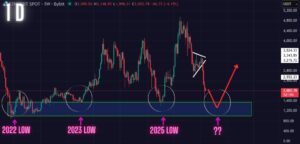
If cryptocurrency is the new frontier in finance, crypto exchanges are the gate keepers!
Cryptocurrency has gained massive popularity over the last few years, and with this rise in popularity comes an inflow of new adopters looking to take advantage of all the benefits this new technology offers us. However, the first few questions you need to have answered is how do people exchange cryptocurrencies? And what platforms do they utilize for such transactions?
In this article, we will cover all you need to know about cryptocurrency exchanges, the types of cryptocurrency exchanges we have, how they work and most importantly how to pick the right one for you.
Still new to the idea of Cryptocurrencies? Checkout this article: Fiat vs Crypto: How Crypto Will Change the Way We Use Money.
What are Crypto Exchanges?
A cryptocurrency exchange is a digital marketplace where people can buy and sell cryptocurrencies! You can purchase a crypto coin of your choice by funding your crypto wallet and converting your fiat money (government-issued currency) into the coin of your choice on a crypto exchange platform.
Crypto exchanges also enables direct trading of cryptocurrencies from one crypto coin to another without the need to first convert it to a fiat currency.
How Do Cryptocurrency Exchanges Work?
Cryptocurrency exchanges are platforms where users can engage in buying, selling, and trading of various cryptocurrencies such as Bitcoin (BTC), Ethereum (ETH), Binance coin (BNB), Solana (SOL) and Polygon (MATIC).
To get started:
- Users need accounts on these exchanges (one of the top crypto exchanges is Binance)
- Once account is created, next step is to deposit funds (exchanges offer different deposit/withdrawal methods)
- After you can move to the trade and specify the type and quantity of cryptocurrencies you want to buy or sell.
That is all!
Once the orders have been placed, the exchange matches these orders, executing trades and updating user account balances accordingly.
Completed trades go through a settlement process, and users have the option to withdraw their funds. Exchanges may charge fees for their services and implement security measures to protect user assets. It is essential to transact with reputable crypto exchanges and stay informed about their offerings, fees, and security features.
Checkout this article: A Beginners Guide to Crypto Leverage Trading
Types of Cryptocurrency Exchanges and How They Work
Various crypto exchanges are available for use, and they can generally be categorized into two common types: centralized exchanges (CEX) and decentralized exchanges (DEX).
1. Centralized Crypto Exchanges (CEX)
Centralized exchanges are widely recognized and used as the preferred option to decentralized exchanges. This is because;
Centralized exchanges are operated by a central authority or company, which acts as an intermediary for trading activities. Some examples of centralized crypto exchanges are
If you wish to trade on these crypto exchanges, you must first deposit some funds into your exchange account. This deposit allows you to access the exchange’s order books, where trading is done. The exchange facilitates the matching of buy and sell orders from different users.
2. Decentralized Crypto Exchanges (DEX)
Although centralized crypto exchanges boast of more users, this does not mean people do not appreciate the benefits, control, and privacy decentralized exchanges offer to their users.
Unlike its counter part, Decentralized exchanges operate on blockchain technology, eliminating the need for a central authority or company to facilitate trading. Some examples of decentralized crypto exchanges are
- Uniswap,
- 1inch
- Pancakeswap and the new guy in town
- Apex (a DEX exchange created by bybit)
When using these types of crypto exchanges, you have total control of your funds throughout the trading process, as you are not required to deposit funds into the exchange.
Instead, trades are executed directly between users through smart contracts, which automatically execute the agreed-upon terms of the trade.
Checkout this article: Decentralised Exchange: Apex Review
Crypto Exchanges: CEX vs DEX Which Is Better?
The answer to this question depends on exactly what you are looking for in an exchange. Do you want privacy, full control of your crypto assets and transparency or would you prefer a 3rd party comes in to secure your funds and offer you speed and ease?
The properties below better explains how these two types of exchanges stand out and differ from each other when it comes to the kind of service they provide.
1. Definition:
- A centralized exchange (CEX) is a third-party platform that’s privately managed by a central organization. This organization handles all the backend work when it comes to crypto asset transaction between buyers and sellers.
- Decentralized exchanges (DEXs) don’t require the services of third parties to handle or manage operations. The DEX platform was built in such a way that provides a direct, peer-to-peer trading mechanism based on smart contract execution.
2. Fund Security:
- Another thing to note about centralized crypto exchanges is that users rely on them to securely hold their funds. Centralized exchanges act like banks, where you trust them to help you store and safeguard your funds until they are ready to withdraw or make trades. This comes with risks, so ensure you trust the exchange well enough before you deposit funds into them.
- Decentralized exchanges promote peer-to-peer trading and empower users by allowing them to transact without intermediaries, directly from their wallets. This significantly reduces the risk of exchange hacks or shutdowns, as users maintain control over their assets even if the decentralized exchange platform itself experiences issues.
3. Trading Pair:
- Centralized crypto exchanges typically offer a wide range of trading pairs, enabling users to trade various cryptocurrencies against each other or against fiat currencies. This diversity of trading pairs contributes to the liquidity of centralized exchanges, making it easier for users to buy and sell assets without significant price slippage (Unexpected price changes).
- Decentralized crypto exchanges have more limited pairs but this is rapidly changing as more innovations keep on coming into the DEX sector.
4. Transaction Speed and Fees:
- Centralized crypto exchanges often have an advantage over decentralized crypto exchanges. Centralized exchanges often offer lower fees and can process transactions quickly since they do not have to worry about network congestion associated with blockchain technology.
- On decentralized exchanges, transactions are confirmed by the underlying blockchain network, which may introduce delays depending on the network’s congestion and block confirmation times. Additionally, transaction fees on decentralized exchanges are often higher due to the computational resources required to execute transactions on the blockchain.
5. KYC and Exchange Rules:
- One aspect of centralized crypto exchanges that makes people disinterested in using them is that centralized exchanges are well within the right to suspend or freeze your account under certain circumstances. This could be due to non compliance with regulatory requirements like uploading your Know Your Customer (KYC) and Anti-Money Laundering (AML) procedures relevant documentation, such as government-issued identification, proof of address, or source of funds. This enables exchanges to ensure compliance with legal and regulatory frameworks to prevent money laundering and other illegal activities.
- Decentralized exchanges typically do not require Know Your Customer (KYC) or Anti-Money Laundering (AML) procedures. This is one of the reasons why people appreciate decentralized exchanges over centralized exchanges. This is because decentralized crypto exchanges affords users greater privacy, as they can trade their crypto assets without disclosing their personal information or undergo identity verification processes. However, it is worth noting that some decentralized exchanges may implement optional KYC procedures or utilize external protocols to comply with regulatory requirements.
How to Choose The Right Crypto Exchanges

The Crypto market is still largely regarded as the “wild-wild west of investing”. We still see situations of crypto exchanges getting hacked or crashing and burning due to the volatile nature of this market.
In this section, we will be pointing out the key factors you should be keeping your eyes on when it comes to choosing the right crypto exchange for your trading needs.
1. Reputation:
One of the biggest factors to watch out for when choosing a crypto exchange is “their Reputation“. As a crypto trader or investor, it is important to carry out due diligence when it comes to researching on the exact crypto exchange you want to sign up to and deposit your funds in.
Sticking with some of the bigger and established names works well too!
2. Security and Accessibility:
The next factors to watch out for is the exchange security track records (how often have they been hacked and how did they handle it?) and their take on various forms of government regulation.
You want to pick a crypto exchange with a strong security track record and favorable regulations to the region you are currently based in. Due to domestic or international laws or crypto bans in some regions, you might not be able to buy or sell cryptocurrencies.
You can find out if you can access a crypto exchange as well as the criteria’s you need to meet in its terms of service.
3. Deposit/Withdrawal Caps and Methods:
Another important factor to research on when searching for a crypto exchange platform to sign up to is their Deposit/withdrawal caps and the methods available for you to carry out these transactions.
These options differ from exchange to exchange. The rule of thumb is to find a crypto exchange that offers you platform that is easy to:
- Deposit
- Withdraw and
- Convert cryptocurrencies and fiat currencies with ease.
Big names like Binance and Bybit also offers their users a well established and liquid P2P option to trade directly with other buyer/sellers making transactions on the platform even faster and smoother.
4. Transaction Speed/Fees and Trading Pairs:
Fees play a major role when it comes to determining your return on your crypto investment. The goal is to find you a
- crypto exchange that offers all the crypto pairs you wish to trade
- on a fast secured, easy to use crypto trading platform
- with low fees.
This way, you can be rest assured that your crypto exchange is not working against you and you have the highest probability of success in this industry.
Conclusion: Understanding Crypto Exchanges
In Summary, all cryptocurrency exchanges come with their merits as well as with their risks also.
So, weather you’re opting for a centralized crypto exchange or a decentralized crypto exchange, it is important you carry out the appropriate research on the Platform you wish to use.
This research will help you find out if the platform suites your needs and can deliver on helping you achieve you crypto investment goals.
Picking the wrong platform could easily see you frustrated and emotional when it comes to placing trades.
Checkout this article: Beginners Guide: How To Create A Balanced Crypto Portfolio For Any Kind Of Market Condition.





